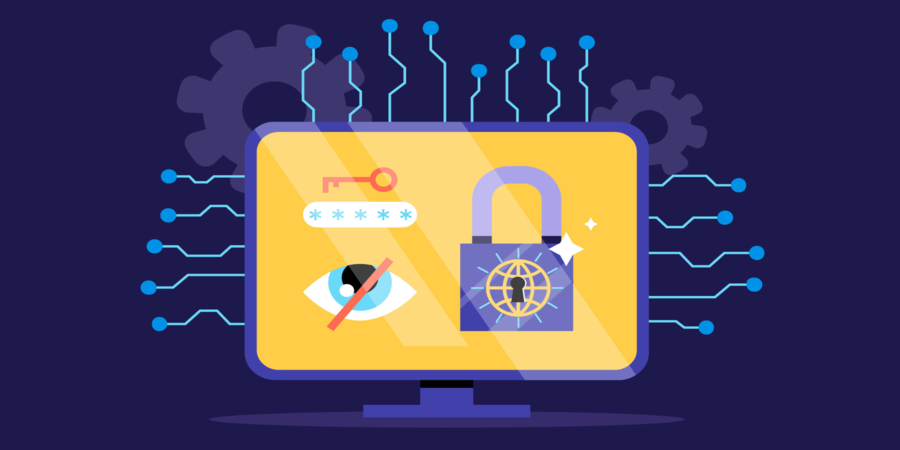

What is Encryption?
Encryption is not just a term thrown around in the movies anymore. It is a vital part of our daily lives, ensuring our sensitive data is kept secure. Whether we're aware of it or not, we use encryption in one form or another every day, from logging into social media sites to conducting online transactions. In this article, we will take an in-depth look at what encryption is, how it works, its importance, and the different types of encryption.
What is Encryption?
Encryption is the process of converting plain text (information that anyone can read) into a coded or ciphered text (information that only authorized persons can read), using an algorithm and a secret key. Essentially, it is the process of scrambling data in such a way that it can only be decoded and read by authorized individuals. The technique of encryption is not new, it has been in use for centuries, dating as far back as ancient Greek and Roman civilizations.
How Encryption Works
Encryption works by performing mathematical computations on the plaintext data using an encryption algorithm. The encryption algorithm takes a plain text message and manipulates it based on a key that both the sender and receiver are aware of. If someone tries to intercept this message, all they see is a random string of characters. The recipient, in turn, uses a decryption algorithm to convert the scrambled data back to its original form.
Most encryption techniques use a symmetric key, which means that the same key is used to encrypt and decrypt data. However, a public key encryption technique, also known as asymmetric encryption, is used when the sender and the receiver do not share the same key. Here, two keys are used, one public key for encryption and a private key for decryption.
Importance of Encryption
In today's digital world, encryption is critical to protect sensitive data from unauthorized access. Information such as personal identification information, bank transactions, and even medical records can be vulnerable to security breaches. Encryption plays a vital role in ensuring that this sensitive information is kept secure. It is not just individuals who benefit from encryption; businesses, governments, and organizations also rely on it to safeguard their most valuable data.
Encryption helps to ensure data confidentiality, integrity, and authenticity. With encryption, it is much more difficult for a hacker to intercept and decrypt a message since they would require access to the secret key, which should only be known to the authorized recipient.
Types of Encryption
There are several encryption techniques used today, some commonly used ones are listed below:
- Advanced Encryption Standard (AES): AES is a widely adopted symmetric encryption technique that uses the same key to encrypt and decrypt data. It can encrypt information in 128, 192, or 256-bit block sizes.
- Triple Data Encryption Standard (3DES): This is an older symmetric encryption technique based on the original DES algorithm, but with three rounds of encryption.
- Public Key Infrastructure (PKI): PKI is a public key encryption technique that uses two keys – a public key and a private key – to encrypt and decrypt information.
- RSA: RSA is a widely used encryption technique that relies on prime numbers to generate secure keys. It is a type of public key encryption that can be used for both encryption and digital signatures.
- Transport Layer Security (TLS): TLS is an encryption protocol used to secure web traffic. It ensures that all data transmitted between a web server and client is encrypted and cannot be intercepted by a third party.
Encryption is an essential part of our data security system, with the potential to protect every bit of information we process each day. By scrambling sensitive data, encryption makes it nearly impossible for hackers and unauthorized entities to access and read it. From banking to healthcare, encryption is used to secure the most valuable data that is exchanged electronically. Understanding how encryption works and its importance can help individuals and organizations to keep their data safe and secure.
In addition to its importance in data security, encryption is also critical to maintaining privacy. In today's world, where much of our personal information is stored online, it is crucial to ensure that this data remains confidential. Encryption helps to protect sensitive information from being accessed without authorization, ensuring that our privacy is maintained.
Encryption can also be used for other purposes, such as to maintain the integrity of data and to provide authentication. By using encryption to sign digital documents, for example, individuals and organizations can ensure that the data has not been altered or tampered with. Encryption can also be used to authenticate users, ensuring that only authorized individuals have access to certain data or systems.
Another important aspect of encryption is key management. Keys are used to encrypt and decrypt data, so it is essential to ensure that they are kept secure. Poor key management can lead to security breaches, as attackers may be able to gain access to the keys and decrypt encrypted data. It is essential to store keys securely and to limit access to these keys to only authorized individuals.
While encryption is a vital tool to protect data and privacy, it is not foolproof. Encryption can be broken with enough time and resources, and hackers are constantly looking for ways to circumvent encryption. As such, it is important to stay vigilant and to use other measures, such as firewalls and antivirus software, in addition to encryption to maintain data security.
Conclusion
Encryption is a critical tool for data security and privacy. By scrambling data in a way that can only be read by authorized individuals, encryption helps to protect sensitive information from being accessed without authorization. While encryption is not foolproof, it is an essential component of any comprehensive data security strategy. Organizations and individuals should strive to understand the basics of encryption and its importance, to use encryption where appropriate, and to remain vigilant against evolving threats to data security.
Popular articles

Jun 08, 2023 07:51 AM

Jun 08, 2023 08:05 AM

Jun 08, 2023 03:04 AM

Jun 07, 2023 04:32 AM

Jun 05, 2023 06:41 AM
Comments (0)